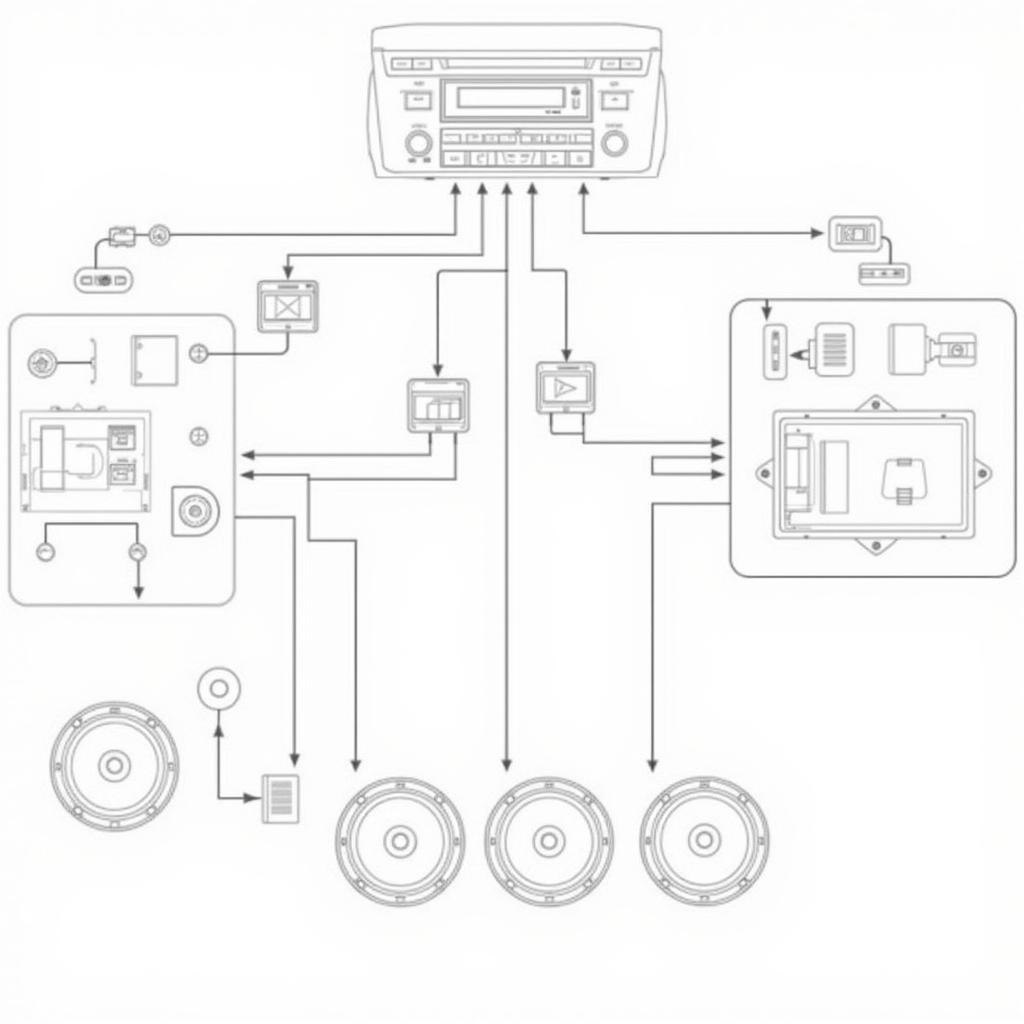The distinct purr of a BMW engine is more than just a sound; it’s an experience. Understanding the nuances of the BMW engine sound effect, from its origins to potential problems, empowers owners and technicians alike to appreciate and maintain these iconic vehicles. This guide dives deep into the world of BMW engine sounds, exploring everything from common issues to advanced diagnostics. After the first paragraph, you can find more information about the BMW hifi audio system.
The Symphony of a BMW Engine: Understanding the Basics
Every BMW engine has a unique acoustic signature, a blend of mechanical whirring, exhaust notes, and intake noises. This “BMW engine sound effect” is carefully engineered and contributes significantly to the driving experience. It’s a reflection of the engine’s health, performance, and even its character. From the refined hum of a straight-six to the aggressive growl of a V8, these sounds tell a story. For those interested in upgrading their audio experience, exploring options like the used BMW audio parts can be beneficial.
Common Causes of Unusual BMW Engine Sounds
A change in your BMW’s engine sound often signals an underlying issue. Ignoring these auditory cues can lead to more significant and costly problems down the road. Some common culprits include:
- Worn-out Belts and Pulleys: A squealing or chirping sound, especially upon startup, can indicate worn belts or pulleys.
- Exhaust Leaks: A hissing or roaring sound, particularly under acceleration, could point to an exhaust leak.
- Valve Train Issues: A ticking or tapping sound, often increasing with engine speed, might suggest problems with the valve train components.
- Rod Knock: A deep, rhythmic knocking sound is a serious warning sign of potential rod bearing failure.
- Vacuum Leaks: A whistling sound, accompanied by rough idling or decreased performance, could be due to a vacuum leak.
Diagnosing BMW Engine Sound Effects: From DIY to Professional Tools
Diagnosing engine noise requires a systematic approach. Start by pinpointing the location and characteristics of the sound. When does it occur? Does it change with engine speed or load? Does it come from the front, rear, or sides of the engine? These details are crucial for effective troubleshooting. For those who appreciate powerful audio, the BMW E63 M6 sound system is worth considering.
For basic checks, a mechanic’s stethoscope can be helpful in isolating the source of the sound. However, for more complex issues, advanced diagnostic tools, including OBD-II scanners and specialized software, are necessary. Remote diagnostics and software installations, such as those offered by CARDIAGTECH, can provide expert analysis and solutions without requiring a physical visit to a workshop. You can refer to our article about the 2016 BMW M4 audio system to gain more insights.
Preventing Engine Noise and Maintaining Peak Performance
Preventive maintenance is key to keeping your BMW engine running smoothly and quietly. Regular oil changes, using the correct oil viscosity, are essential. Inspecting and replacing worn belts, hoses, and fluids at recommended intervals can prevent many common noise-related issues. For those with a BMW i4, understanding the BMW i4 standard sound system can be helpful for comparison and upgrades.
Why Choose Professional BMW Engine Diagnostics and Repair?
While some minor issues can be addressed with DIY methods, complex engine problems often require specialized expertise. Professional technicians possess the knowledge, tools, and experience to accurately diagnose and repair your BMW engine, ensuring optimal performance and longevity.
Conclusion: Listening to Your BMW’s Engine
The BMW engine sound effect is an integral part of the ownership experience. By understanding its nuances and addressing any unusual sounds promptly, you can ensure your BMW continues to perform at its best, delivering the exhilarating driving experience it was designed for. Don’t ignore the whispers of your engine; they might be telling you something important. If you’re experiencing any unusual engine sounds, contact CARDIAGTECH for expert diagnostics and repair solutions.
FAQ
-
What are the most common causes of BMW engine noise?
Common causes include worn belts, exhaust leaks, valve train issues, rod knock, and vacuum leaks. -
How can I diagnose BMW engine noise myself?
Start by identifying the location and characteristics of the sound. A mechanic’s stethoscope can be helpful for basic checks. -
When should I seek professional help for BMW engine noise?
Seek professional help for complex issues or when DIY methods fail to resolve the problem. -
How can I prevent BMW engine noise?
Regular maintenance, including oil changes and inspections, is crucial for preventing noise-related issues. -
What are the benefits of professional BMW engine repair?
Professional technicians have the expertise and tools to accurately diagnose and repair complex engine problems, ensuring optimal performance. -
What is the significance of the BMW engine sound effect?
The BMW engine sound is a carefully engineered aspect of the driving experience, reflecting the engine’s health and performance. -
What should I do if I hear an unusual noise from my BMW engine?
Pay attention to the sound’s characteristics and consider professional diagnostics if necessary.
Need assistance? Contact us via WhatsApp: +1 (641) 206-8880, Email: CARDIAGTECH[email protected] or visit us at 276 Reock St, City of Orange, NJ 07050, United States. We have a 24/7 customer support team.

